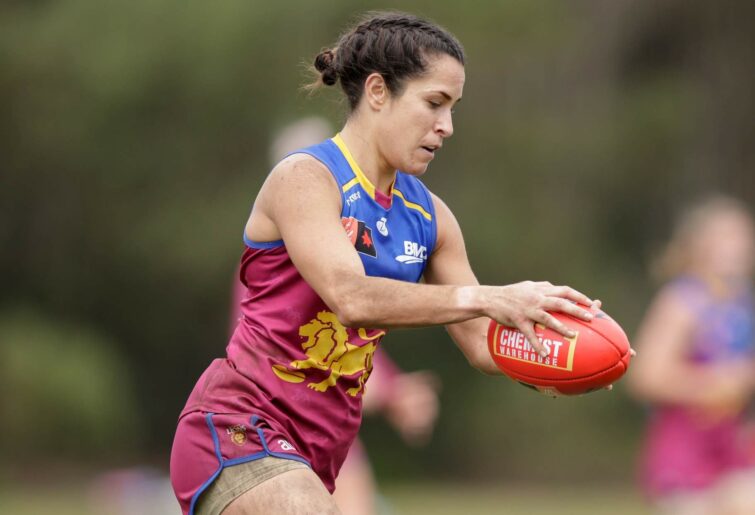Six Points: Channel 7's commentary, the AFL's most underrated coach, and what on earth is wrong with a draw?
Eight weeks is usually the point where the AFL ladder has taken its shape for the season - and thanks to Opening Round, that's…
Opinion
We’ve seen it in the NBA. We’ve seen it in the MLB. We’ve seen it in the EFL. The concept of having teams who are contending for the last finals/playoffs positions to compete against one another in a mini-tournament has seemed to spread across world sports.
And now, it might just appear in the AFL.
Discussions have been taking place between AFL CEO-elect Andrew Dillon and the 18 club CEOs about possibly changing the finals system for the first time in 23 years as part of a fixturing revamp. It has now led to a debate on whether they should adopt the new finals format or stick with the traditional final-eight system.
But with that in mind, let’s take a look at the merit of the Wildcard Round and whether or not this can be the ace up the AFL’s sleeve or simply a joker in the pack.
From the perspective of the AFL, it provides a solution to the end-of-season bye, providing extra interest in the men’s season for fans and media by allowing for essentially an extra two elimination finals matches. This would likely see the TV rights go up in value making it far more marketable with more games having more meaning in the context of finals likely increasing viewership.
It also makes sense in the context of the likely expansion of the AFL. With a 19th team announced for 2028 and an assumed 20th team sometime during the 2030s, you would presume that the AFL would want to keep at least 45 per cent of teams competing in the finals series, if not more, knowing that with more teams in the dance, the more storylines and narratives you have to market to the wider audience.
Using last year as an example, how much drama and excitement would have surrounded Carlton’s first finals game in roughly a decade as they play the Bulldogs who look to redeem their finals performance from 2021, while on the next day, a traditional powerhouse in Richmond plays St Kilda who look to redeem themselves after capitulating once again in the final stages of the home-and-away season.
However, would the AFL want it to compete with the likely opening round of the AFLW, which seems like the perfect launchpad for the competition as it’s providing them an uninterrupted week to play matches?
Would the AFL be willing to potentially stifle interest in the competition for a short sugar hit in the Wildcard Round, which would also likely delay the AFLW season until after the completion of the men’s, putting in direct competition with the WBBL.

(Photo by Russell Freeman/AFL Photos via Getty Images)
While the concept of having teams outside the traditional top eight seems like a very left-field idea, there are plenty of examples of it existing within the footy world in recent years.
The Wildcard Round was introduced to the Talent League last year, although their model was heavily expanded upon to include fourth to 13th which was designed more to focus on player development than actual league structure.
In its extremely small sample size, the lower-ranked teams won four out of the five matches in the round demonstrating the competitiveness that the teams below can have. Although, to conflate these results to the AFL level would be extremely silly.
We’ll get a look at this concept that has been touted for the AFL, this year in the VFL, who last December announced the addition of the Wildcard Round to their 21-team competition for this season. With the VFL season coming to its conclusion, its introduction has seen an extra layer of competitiveness with Casey, North Melbourne and Williamstown all tied for the last two automatic spots for finals.
This is also seen in the wildcard spots with eighth to 13th all being within 8 points of each other. This would be a good sign for the AFL for its potential, with the likely result of multiple teams likely to compete for limited spots in the top six as well as the bottom end of the wildcard spots.
Now, while this may create more competitiveness towards the end of the home-and-away season, the real question will be the effect the Wildcard Round has on the finals series.
While the ability for a team that’s ninth or 10th to win against seventh or eighth could be a very realistic probability, after that, the likelihood of beating either fifth or sixth to progress further seems unlikely, particularly with the extra weeks rest they’ll have over their opponents.

Tom Papley celebrates a goal. (Photo by Matt King/AFL Photos/via Getty Images)
As pointed out by David King on SEN this Friday, in the past five years, no team placed seventh or eighth has made it past the semi-finals. Although, if you look just one year beyond that in 2016, seventh actually won the premiership against all odds with the end-of-season bye.
There have also had issues pointed out by a trio of senior coaches in Brett Ratten and the Scott brothers questioning its legitimacy, with the belief that if the system works, then why fix it? This also includes issues with the compromised nature of the fixture meaning that teams in the Wildcard Round may still be affected by the uncertainty by who gets to play which team twice as it is now.
Now, I should preface that I am all in on this idea, but there need to be certain markers that are met to qualify for the Wildcard Round.
To trigger it, teams in ninth and/or 10th would need to be within four points of eighth to be able to have the Wildcard Round. Now if ninth meets those conditions and 10th does not, then you would just have the eighth vs ninth match being played in that bye weekend. If neither side achieves that then the Wildcard Round doesn’t happen.
This safeguard would mean that mediocrity wouldn’t be rewarded but instead make something to be earnt and not taken for granted.
If this were to be applied to the last 22 years, the Wildcard Round would have happened on 18 occasions (only 2006, 2009, 2011 and 2012 would have not seen it played). And in half of the final ladders since 2000, 10th place finished within 4 points of eighth, allowing for both games.
With that information, the idea that this would reward mediocrity as espoused by Mick Malthouse and others is just not true. Given how the majority of teams just making finals can be based on a couple of percentage points here or there, the Wildcard Round would decide definitively who deserves to be in September.
It would make more sense if this addition was to come in whenever the 20th AFL/AFLW team would come into the competition that way it’s still only the top half of teams competing. Or after the next broadcast deal which is to expire in 2031 to ensure any monetary value could be capitalised upon straight away.
But if it the idea and execution are good enough, then there is no point in standing still and letting time pass. Bring on the Wildcard Round and all its chaos.